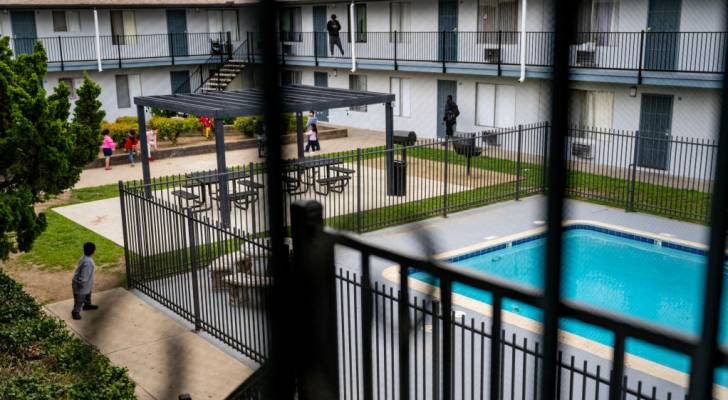Make an offer on a home and you might assume you’re competing against people just like you — or maybe a local real estate investor who wants to add a rental property to their portfolio.
But these days, you could just as easily be competing against a far more daunting buyer: multi-billion private-equity firm Blackstone, now widely considered the world’s largest landlord. The Guardian reports it has a $320 billion real estate portfolio.
Shop Top Mortgage Rates
Powered by Money.com – Yahoo may earn commission from the links above.
The multinational has been on a buying spree, taking over apartment giants Tricon Residential and AIR Communities along with American Campus Communities, which develops and operates student housing nationwide.
That’s on top of all the mobile home parks and single-family homes Blackstone has bought up and turned into rent-generating properties for its profitable portfolio. As CNBC reports, Blackstone owns over 274,000 rental homes in the U.S. alone.
Here’s what’s behind Blackstone’s strategy and what it means for renters, homebuyers and lawmakers.
“What we’re saying is don’t have private equity buying up single-family homes.” Rep. Ro Khanna told CNBC.
The housing affordability crisis plays a role in Blackstone’s strategy to turn residential buildings into big-time investment properties. Demand for, and profit from, rental properties continues to grow as more potential homebuyers are priced out of the housing market.
That’s particularly true in the urban centres Blackstone is targeting in places like New York, Texas, Florida, Georgia and other Sun Belt States.
Read more: Nervous about the stock market? Gain potential quarterly income through this $1B private real estate fund — even if you’re not a millionaire. Here’s how to get started with as little as $10
The firm is purposefully buying, not building, rental properties. That’s because — as Will Pattison, head of real estate research at MetLife Investment Management, told CNBC — “buying is still cheaper than building in many markets.”
“This is limiting construction and supporting rent growth,” he added.
Story Continues
There are widespread concerns that private-equity investors like Blackstone are reducing supply, causing house prices to spike and driving people to rent — exacerbating the very housing crisis from which they benefit.
Blackstone is certainly not the only private equity firm engaged in this strategy. CNBC reports that private-equity firms started buying cheap foreclosures after the 2008 housing crash and are still buying up single-family homes to turn into rentals.
By 2030, institutional investors could control 40% of U.S. single-family homes according to MetLife Investment Management.
While the property management company Greystar notes that there are some benefits to living in a corporate-owned rental property, including more structured management and sometimes more amenities, there are definite downsides.
The non-profit advocacy group Private Equity Stakeholder Project (PESP) argues that a business model that requires “high returns on a short timeline” lead to problems in corporate-owned housing.
In a report on these concerns, PESP identified:
Large rent increases. The advocacy group notes that since 2019, rents have risen dramatically in Tampa/St. Pete in Florida, Phoenix, Dallas, Charlotte and Atlanta — all areas with a high concentration of private-equity ownership in rental properties.
Hidden fees.
Inadequate maintenance and repairs. As PESP writes, “Private equity landlords generally do everything possible to maximize cash flow to themselves while cutting costs, including deferring maintenance.”
Non-responsiveness to tenant concerns.
Aggressive eviction practices.
Lawmakers like Rep. Ro Khanna want to limit the incursion of private-equity firms into rental housing. In 2022, he and a number of his fellow lawmakers introduced the Stop Wall Street Landlords Act. They reintroduced it last fall. It has yet to pass.
In the meantime, Blackstone and other private-equity firms continue to buy residential properties across the U.S. and around the world, changing the housing market for everyone.
Stay in the know. Join 200,000+ readers and get the best of Moneywise sent straight to your inbox every week for free. Subscribe now.
This article provides information only and should not be construed as advice. It is provided without warranty of any kind.

